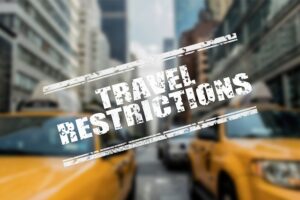Last Updated on December 18, 2022 by Anda Malescu
Foreign nationals who wish to engage in gainful employment in the United States require prior governmental permission in the form of an employment visa issued by the U.S. State Department. There are different categories of non-immigrant visas for foreign nationals who intend to work in the United States temporarily. Each of these visas has a clearly defined use, and both the U.S. employer and the foreign visa applicant must satisfy stringent and detailed requirements to obtain a visa.
The application process is complex and comprehensive and may involve obtaining prior permissions from various government departments, or, as is the case with foreign artists or athletes on O-1 visa or P-1 visa, opinion letters from government recognized private entities such as trade unions and industry specific organizations.
By far the most popular visa category used by the majority of foreign visitors to the United States is the B-1/B-2 visa, which permits its holder to visit the United States for business or pleasure. The application process for this visa is less comprehensive that for other non-immigrant visas, and applicants have to deal with only one government department, the U.S. State Department.
On the business side, the regulations enumerate a number of activities a foreign visitor may engage in on a B-1 Business visa. Examples of these activities include attending board of directors’ meetings, investigating investment opportunities, or soliciting orders in the United States for a foreign employer.
B-1 visa in lieu of H-1B visa
Among the permitted uses of a B-1 visa is the ability to engage in short term employment in the United States in a specialty occupation for qualified foreign employees. The requirements regarding the type of employment and the qualifications of the applicant to engage in such employment mirror those of an H-1B visa, and this limited use of the B-1 visa is known as “B-1 in lieu of H-1”.
This use of the B-1 visa permits a foreign employer to send a qualified foreign employee to the United States to engage in a specialty occupation on behalf of the foreign employer for a limited purpose and limited period of time, without having to obtain permission from the U.S. Labor Department, and filing a petition on behalf of the employee with United States Citizenship and Immigration Services (USCIS) as conditions precedent to the actual visa application.
The activities and the applicant must meet the requirements for an H-1B, in that the activities must meet the definition of a specialty occupation, which requires the applicant to possess at least a bachelor’s degree or equivalent as a pre-requisite in order to engage in the activities. Neither the regulations nor the Foreign Affairs Manual further define the limits of the activities the foreign employee may engage in. A U.S. State Department guidance cable of October 2012 on the subject, states that a B-1 in lieu of H-1 “may be used for activities that would normally require an H-1B.”
In addition to satisfying the requirements for an H-1B visa, the B-1 applicant must overcome the statutory presumption of immigrant intent, required of every applicant for a non-immigrant visa. Specific to the application for the “in lieu” use of the B-1 is the existence of an employment relationship with the foreign employer. The foreign employee may receive a salary or other remuneration from the foreign employer – other than an expense allowance or expense reimbursement – only from sources outside of the United States.
It is the foreign employer’s obligation to supervise and direct the activities of the foreign employee at all times during the proposed stay in the United States. This is of particular significance if the employee’s activities are to be undertaken on-site at a U.S. business location. The primary benefit of the stay must accrue to the foreign employer or further international commerce.
There must be a showing of the temporary nature of the stay. The foreign national should be entering the U.S. for a specific and limited period of stay that is consistent with the purpose of the trip, generally not to exceed six months.
Although the “in lieu of” usage of the B-1 visa may be a useful tool for a foreign entity to permit its employees to engage in short term projects in the United States, the uncharacteristically vague definition of the permitted activities have led to abuses of this visa in the past. These abuses have resulted in calls for the elimination of this B-1 visa use, and increased scrutiny of visa applications in this category.
To date, this use of the B-1 visa remains on the books, but interested applicants need to proceed with caution, and provide the reviewing U.S. consular post with ample and adequate documentation to support the granting of a B-1 in lieu of an H-1B visa.
Malescu Law can assist
Contact us or schedule an appointment with your business immigration attorney in Miami, Florida USA to help you with the use of B-1 Visa in lieu of H-1B Visa.
Looking for professional help with employment visa?





